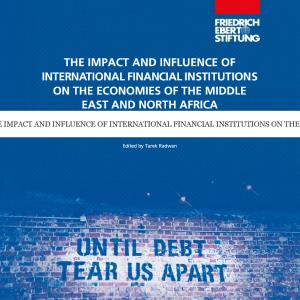THE IMPACT AND INFLUENCE OF INTERNATIONAL FINANCIAL

If the uprisings of 2011 in the Middle East and North Africa (MENA) countries signaled an ‘Arab Awakening,’ the renewed unrest in Algeria, Iraq, Lebanon, and Sudan only serves to remind us that the underlying factors that drove these countries to demand political and economic change remains firmly entrenched as the region and the world march into 2020. Indeed, protest and populist movements spanning the globe - from Latin America to Hong Kong - over the past decade appear to derive much of their anger from a shrinking middle class, an ever-growing wealth gap, and a sense of being left behind in a globalized world where economic systems appear to benefit business elites and the politically connected. Although this new wave of protests reflects country-specific cultural and political contexts, the latest demands in the MENA region share much in common with their predecessors: a call for social justice and accountability - and rooted within it, a strong economic dimension remains. Corruption, poor government services, and an inequitable redistribution of wealth feature just as prominently in many Arab countries today as in 2011, if referred to in slightly different terms. As architects of the globalized world, international financial institutions (IFIs) - particularly the International Monetary Fund (IMF) and the World Bank - exert varying degrees of influence over economic policy in the region. They continue to shape these historical trajectories at the nexus of macroeconomics, social justice, and political change.

